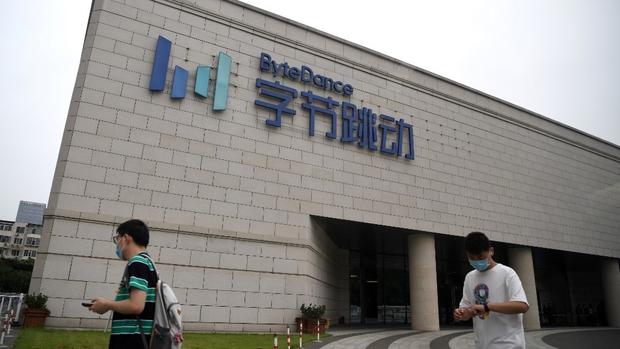 Employees walk outside the headquarters of ByteDance, the owner of video sharing app TikTok, in Beijing on Aug 5, 2020. (NOEL CELIS / AFP)
Employees walk outside the headquarters of ByteDance, the owner of video sharing app TikTok, in Beijing on Aug 5, 2020. (NOEL CELIS / AFP)
BEIJING - Beijing-based ByteDance recently launched its own third-party payment service for Douyin, the Chinese version of its hit short video app TikTok, as it presses to expand into the e-commerce business in China.
“The set-up of Douyin Pay is to supplement the existing major payment options, and to ultimately enhance user experience on Douyin,” Douyin said in a statement to Reuters on Tuesday.
Users of Douyin, which accumulated 600 million daily active users, previously could use Ant Group’s Alipay and Tencent Holdings’ WeChat Pay, the country’s two ubiquitous third-party mobile payment channels, to buy virtual gifts for livestreamers or items from shops on the platform
Users of Douyin, which accumulated 600 million daily active users, previously could use Ant Group’s Alipay and Tencent Holdings’ WeChat Pay, the country’s two ubiquitous third-party mobile payment channels, to buy virtual gifts for livestreamers or items from shops on the platform.
Local Chinese media reported on Tuesday that Douyin Pay had been launched.
ALSO READ: US court to hear appeal against order blocking TikTok ban
ByteDance founder and Chief Executive Zhang Yiming built up the company’s payment capability in China by acquiring Wuhan Hezhong Yibao Technology Co last year. Hezhong Yibao obtained a third-party payment license from the central bank in 2014.
Douyin is the main revenue generator for ByteDance. It provides a glimpse of what TikTok could eventually become, as Douyin started selling merchandise in 2017 and now operates a growing e-commerce operation where hundreds of millions of users shop on a daily basis.
China’s third-party payment sector is dominated by Alipay and WeChat Pay, with the former taking 55.39 percent of the total market in the second quarter of last year, according to market researcher Analysys. Other players include JD.com’s JD Pay, Baidu Wallet and Meituan Pay.
READ MORE: ByteDance challenges Trump's TikTok divestiture order


